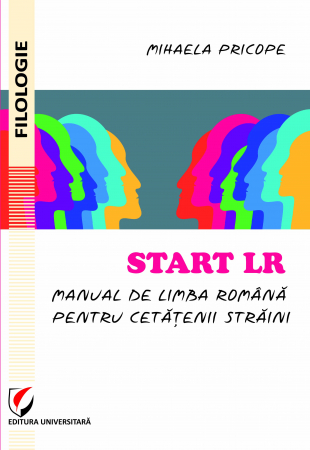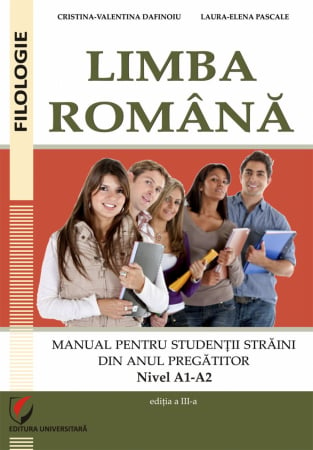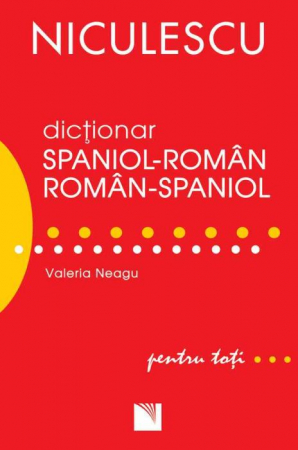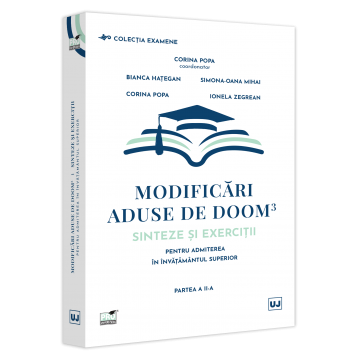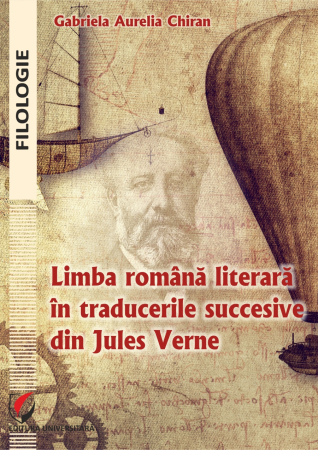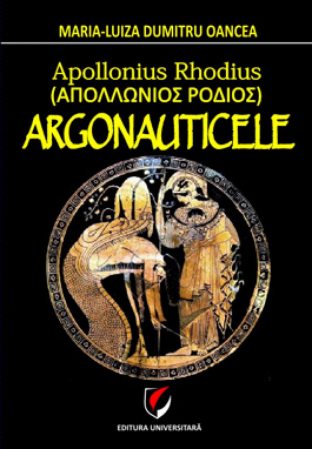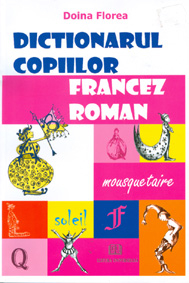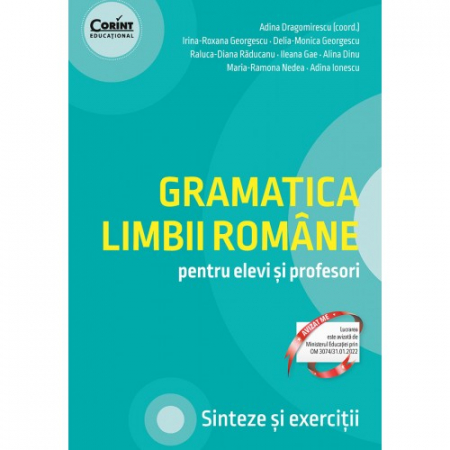Manuscript proposals: [email protected] / 0745 204 115 //// Tracking orders Individuals / Sales: 0745 200 357 / Orders Legal entities: 0721 722 783
Publisher: Editura Universitară
Author: Gheorghe Savu
ISBN: 978-606-28-1283-6
DOI: https://doi.org/10.5682/9786062812836
Publisher year: 2021
Edition: I
Pages: 160
Product Code:
9786062812836
Do you need help?
0745 200 357
- Description
- Download (1)
- Authors
- Content
- More details
- Reviews (0)
I have always believed that the lyrics in Miorita sound like short bells that accompany the traveler forever. And as each of us makes this journey, the Mioritic verses deliver us from ridicule or noisy and often unjust lamentations about death. These verses show us that not only the Mioritic shepherd can be pessimistic, resigned, fatalistic, but each of us, which means that this shepherd is an archetype. As a result, Miorita tries to tell us that this reality would be something characteristic for the entire Romanian people.
Constantin Noica said that the Romanian went through the country's forests so much and so deep, that he got to where everyone has to go through something: the foundation of the work. And Eminescu sang what is shown there: "Under the forest / There is no path, no path".
The Author
Constantin Noica said that the Romanian went through the country's forests so much and so deep, that he got to where everyone has to go through something: the foundation of the work. And Eminescu sang what is shown there: "Under the forest / There is no path, no path".
The Author
-
Muscelean miorita
Download
GHEORGHE SAVU
Prologue / 9
Preface / 13
1. Un izvod / 16
2. After 61 years / 26
3. Miorita's Genesis Center / 35
4. Culture and economy / 47
5. The theory of diffusion / 54
6. Plaiul muscelean / 68
7. Pastoral toponymy / 77
8. Stana Plaisor / 82
9. Mythologies and legends / 87
10. Shepherds and farmers / 93
11. Mythology of the brothers / 103
12. The Mioritic Song / 110
13. Deceased mythology / 119
14. Mioritic love / 124
15. Tulip and mountain peony / 130
Miorita musceleana / 137
Epilogue / 146
Bibliography / 156
Preface / 13
1. Un izvod / 16
2. After 61 years / 26
3. Miorita's Genesis Center / 35
4. Culture and economy / 47
5. The theory of diffusion / 54
6. Plaiul muscelean / 68
7. Pastoral toponymy / 77
8. Stana Plaisor / 82
9. Mythologies and legends / 87
10. Shepherds and farmers / 93
11. Mythology of the brothers / 103
12. The Mioritic Song / 110
13. Deceased mythology / 119
14. Mioritic love / 124
15. Tulip and mountain peony / 130
Miorita musceleana / 137
Epilogue / 146
Bibliography / 156
"It's time for a short pre-Slovene", I must say, like the gentle chronicler of Moldova, because before writing about Miorita I stayed in the company for a long time and on a blessed day I decided to "soften to the calimara", the same word columnist. It is undoubtedly an act of courage and a responsible commitment to write about Miorita. Others have done it, but I think, much more knowledgeable than me. I am not speaking from the perspective of any competence or scientific authority. And, if my approach is somewhat different from that of specialists in the field, this is because I have no claims of exeget or academic intentions, other than to describe a legendary fact that happened in my homeland and about which I found from the village estates. So I started studying Miorita! And whoever finds out about this Mioritic variant, will probably gain from his reading an impulse to study our folklore further. And this, for me, is enough and satisfying. Constantin Brailoiu's words that only through our peasant culture will we mean something in this great world. With the weapons of the West we will never beat the West and it will be a long time before we cease to be a caricature or, at best, an unimportant copy of the West.
On the other hand, I have always believed that the lyrics in Miorita sound like short bells that accompany the traveler forever. And as each of us makes this journey, the Mioritic verses deliver us from ridicule or noisy and often unjust lamentations about death. These verses show us that not only the Mioritic shepherd can be pessimistic, resigned, fatalistic, but each of us, which means that this shepherd is an archetype. As a result, Miorita tries to tell us that this reality would be something characteristic for the entire Romanian people. However, there are also those who see in the Mioritic poem only cowardice, theft and criminal instinct. Which is why we tried to generalize this understanding to the entire Romanian nation. This is how Miorita became politics, a "mioritic phenomenon", according to Constantin Noica! And if the traditional Miorita united the people, the political one divided them. Political strategies project in the subconscious of our young people their own gloomy shadows of the criminal spirit of the two shepherds, which made the political Miorita yellow (Emil Cioran's words). And so, Miorita is descended from the metaphysical to the political sphere, from a sacred shepherd to some naive young people, who are not initiated in the backstage strategies of politics, just as the sacrificed shepherd was initiated in the sacred mysteries of our Mioritic space. Constantin Noica said that the Romanian went through the country's forests so much and so deep, that he got to where everyone has to go through something: the foundation of the work. And Eminescu sang what is shown there: "Under the forest / There is no path, no path".
Therefore, people have carved paths through secular forests and plains to open the gate to historical salvation. But the paths they once cut and crossed turned out today to be paths that led nowhere. Moreover, these paths disappeared with the forests. Their cutting is now done with modern mechanical means, whose productivity has increased so much that it can be cut and transported in an hour as it was cut and transported in the past an entire season. Our forests have become a space of mourning, not mioritic, as Lucian Blaga defined it. In the mioritic space, ugly images appeared of the poverty left behind by the teeth of the chainsaws and by the deep traces of the powerful cars. These traces look like wounds of the earth, but they are real wounds of the soul. The capitalist spirit has penetrated our forests, being more interested in the efficiency of the end than in the morality of the means. And so, the "firs and maples", married at the symbolic marriage of the mioritic shepherd, were put on the ground. The "mouth of heaven" has been wiped off the face of the earth. And the mioritic shepherd is left alone to cry the pain.
On the other hand, I have always believed that the lyrics in Miorita sound like short bells that accompany the traveler forever. And as each of us makes this journey, the Mioritic verses deliver us from ridicule or noisy and often unjust lamentations about death. These verses show us that not only the Mioritic shepherd can be pessimistic, resigned, fatalistic, but each of us, which means that this shepherd is an archetype. As a result, Miorita tries to tell us that this reality would be something characteristic for the entire Romanian people. However, there are also those who see in the Mioritic poem only cowardice, theft and criminal instinct. Which is why we tried to generalize this understanding to the entire Romanian nation. This is how Miorita became politics, a "mioritic phenomenon", according to Constantin Noica! And if the traditional Miorita united the people, the political one divided them. Political strategies project in the subconscious of our young people their own gloomy shadows of the criminal spirit of the two shepherds, which made the political Miorita yellow (Emil Cioran's words). And so, Miorita is descended from the metaphysical to the political sphere, from a sacred shepherd to some naive young people, who are not initiated in the backstage strategies of politics, just as the sacrificed shepherd was initiated in the sacred mysteries of our Mioritic space. Constantin Noica said that the Romanian went through the country's forests so much and so deep, that he got to where everyone has to go through something: the foundation of the work. And Eminescu sang what is shown there: "Under the forest / There is no path, no path".
Therefore, people have carved paths through secular forests and plains to open the gate to historical salvation. But the paths they once cut and crossed turned out today to be paths that led nowhere. Moreover, these paths disappeared with the forests. Their cutting is now done with modern mechanical means, whose productivity has increased so much that it can be cut and transported in an hour as it was cut and transported in the past an entire season. Our forests have become a space of mourning, not mioritic, as Lucian Blaga defined it. In the mioritic space, ugly images appeared of the poverty left behind by the teeth of the chainsaws and by the deep traces of the powerful cars. These traces look like wounds of the earth, but they are real wounds of the soul. The capitalist spirit has penetrated our forests, being more interested in the efficiency of the end than in the morality of the means. And so, the "firs and maples", married at the symbolic marriage of the mioritic shepherd, were put on the ground. The "mouth of heaven" has been wiped off the face of the earth. And the mioritic shepherd is left alone to cry the pain.
If you want to express your opinion about this product you can add a review.
write a review

6359.png)
![Muscelean miorita - Gheorghe Savu [1] Muscelean miorita - Gheorghe Savu [1]](https://gomagcdn.ro/domains/editurauniversitara.ro/files/product/large/savu-ghe_miorita-musceleana_bt-corect-3188-4075.jpg)
